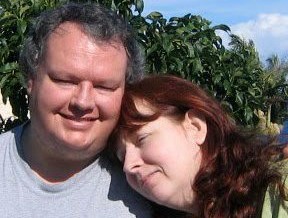I am still eating a very-low-carb diet. (The one I'm following is LCHF, very similar to Paleo. Look back a few entries in my LJ for more info about the diet itself.) So far, it is an awesome life-change for me and I am actually enjoying it. Compared to other "points" or "calorie restriction" diets, it has been much easier to follow and stay on. I have been losing about 2-3 pounds a week when I'm paying close attention, and staying about the same when I become lazy or cheat more than 1 day per week.. but it seems quite sustainable.
Perhaps it's too early to write the story of my success. Honestly, I am still in the middle of the voyage of discovery. But I wanted to take some notes for myself about how I'm feeling about it right now, because I feel like I'm reaching a turning point. For one thing, I am able to eat much much less, and get away with it, almost effortlessly, and I think that is important to the long-term plan.
After spending the first month or so just getting used to what foods to buy and eat, and a month or so just getting into the habits and learning the skills I need, there followed about 6 months keeping up the new regime, give or take a couple vacations. The pattern for those 6 months has been this: seek out fats and eat them, being careful to get enough so that I won't get hungry.
The theory has been that I'm training my body to consume fats, and therefore when I do choose to eat less, my body can easily tap into my own "strategic energy reserves" mostly located around my middle. The theory was, that over time I would eat less food overall, and not go hungry. But, I guess until right now I was a bit shy about actually testing the theory. I was keeping busy with finding the fat sources and making sure to eat enough of it because I was afraid of what would happen if I started to eat less.
But, now in the last week or so, I am actually eating less, and it's been fine. I'm still a little shy about testing it too much because I don't want to make myself hungry, then risk ditching the diet because I'm discouraged. Early indications are good, however. A couple times I have just skipped breakfast and lunch, and almost unbelievably, the theory works! Strategic energy reserves are getting burned, almost without me noticing. If I eat much less (even as low as 1/3 of my daily average), I still don't seem to notice any actual feelings of hunger. This is what I expected, but still it's weird.
The old low-fat diet advice says "a calorie is a calorie" and implies that carbs are better than fats, because you can eat more of them — a pound of sugar or starch has less than half the calories of a pound of fat. I don't believe that calorie counting is the key, nor even a useful skill, but I do believe that calories figure in one way or another. At least that part the scientists have right. What I now believe is that "low carb" is not a magic spell that makes calories not matter, but "low carb" certainly makes it *easier* to consume less and still be satisfied. I now believe that LCHF by itself is not a complete solution, just like limiting calories by itself is not a complete solution, but that both of them together can form a winning combination.
In other words, I have been using mayonnaise as a crutch, and I don't think I need to do that anymore. Making sure I get enough food doesn't need to be the primary concern anymore. I need to take the next step–which is to find out how low I can actually go before actually feeling hungry, which I don't recall feeling at all in the last 8 months. I have totally changed *what* I'm eating without much change to *how much* I'm eating — now it's time to learn where the edges are in a different direction.
